- 74 Mount Street, Heidelberg, VIC, 3084
- Monday to Friday: 9am to 5pm
Auditory Processing
-
DWM Audiology > Our Services > Auditory Processing
Although we hear with our ears, it is our brain that makes sense of the information we hear. The mechanism by which the brain analyses and assigns meaning to auditory information is known as auditory processing. A Central Auditory Processing Disorder (CAPD, sometimes called APD) occurs when this process is impaired.
What is the effect of a CAPD?
Efficient processing of auditory information is very important for children and adults to be successful in learning and communication. A CAPD will have an impact on educational achievement, social development, relationships and general emotional well being.
Listed below are some common behavioural characteristics of people with a CAPD. Central auditory processing consists of a number of different underlying mechanisms. The actual symptoms of a person’s CAPD will depend on which mechanisms are affected.
- Difficulties hearing in noise.
- Frequent requests for repetition.
- Inability to follow instructions.
- Poor memory for auditory information.
- Difficulties identifying features of speech sounds so that reading is affected.
- Academic problems, especially reading, spelling and comprehension.
- Behavioural problems.
- Short attention span.
- Social difficulties.
(It is important to note that these symptoms can result from other disorders. Careful assessment is required to identify the underlying cause).
Assessment of CAPD
Central auditory processing is an umbrella term for a number of different underlying mechanisms. At our clinic, a comprehensive test battery is used to assess these mechanisms. The specific processes assessed are:
- Dichotic listening: This refers to the processing of information received in both ears when the information to each ear is different. It is important for hearing in noise.
- Temporal processing: This is the ability to process time-related cues in sounds which are critical for speech and music perception.
- Spatial processing: This is the ability to use cues from the location of sounds (spatial cues) to separate the target message from background noise.
- The ability to understand distorted speech: Distorted speech has fewer cues to facilitate a person’s ability to guess a message they have not heard clearly. A person with CAPD, with a less efficient auditory system, will struggle more with this task.
- Auditory memory: An efficient auditory memory system is required for effective processing, storing and recalling of auditory information.
The tests we use have been selected to identify weaknesses or problems in each of these areas.
CAPD testing is relatively demanding, and parents are advised to arrange morning appointments when their children are most alert. Although most children with CAPD have normal hearing, a standard hearing test must be carried out to exclude the possibility of a peripheral hearing impairment. This part of the assessment is carried out at the first appointment. The complete assessment takes up to 2 ½ hours, which is spread over two to three appointments. A detailed report discussing the questionnaire responses, test results and rehabilitative recommendations, is provided.
When should a CAPD assessment be carried out?
A CAPD assessment is recommended for children and adults with:
- attention, listening, learning and reading/spelling problems,
- a history of regular middle ear infections where a fluctuating hearing loss may cause a delay in the development of the central auditory pathway.
- CAPD associated conditions such as dyslexia or other learning disorders and ADD/ADHD.
CAPD Testing is suitable for adults and children from age 7. Before age 7, there is too wide a range of auditory processing abilities to make reliable comparisons.
Management of CAPD
A comprehensive management program can be put together, once a person’s specific auditory processing weaknesses have been identified. This program will also take into account other factors such as the age of the person and their particular requirements. The aim of the rehabilitative program is to both strengthen a person’s auditory processing skills as well as to teach them strategies to better manage the auditory processing problems they are having. The management program for CAPD will usually consist of a combination of the following four components:
Modifications to the person's classroom and home environment
Teaching the person to be responsible for their listening comprehension
Targeting each individual auditory processing deficit as identified by the assessment
Use of an FM unit, which allows a teacher's voice to be transmitted directly to the child's ears
Book an Appointment
FAQs
What is CAPD?
A CAPD (or APD) occurs when the mechanism by which the brain analyses and assigns meaning to auditory information is impaired.
What is the cause of CAPD?
CAPD is caused by an impairment in the central auditory nervous system that affects a child’s ability to understand and remember information presented verbally.
A CAPD is sometimes associated with a delay in the development of the neural pathways between the ear and the brain. This delay can sometimes be caused by fluctuating hearing loss from repeated ear infections. However, most of the time, the cause of a CAPD is unknown.
What are some of the symptoms of a CAPD?
Common symptoms of a CAPD include:
- Increased difficulties hearing in noisy environments
- Increased difficulties hearing unclear speakers or fast speakers
- Taking longer to respond to auditory communication, reading, spelling and learning problems
- Difficulties understanding the intent behind a verbal message
- Difficulties remembering auditory information.
How is CAPD diagnosed?
A CAPD/APD is diagnosed when we identify weaknesses or problems in the various underlying mechanisms involved in auditory processing.
Is CAPD/auditory processing disorder a learning disability?
A CAPD/APD can underlie a learning disability.
Can CAPD be cured?
Treatments for CAPD may include modifying the environment to reduce or eliminate certain sounds, teaching skills to compensate for the effects of the CAPD, and auditory training to improve the specific auditory deficit.
In some cases, a child may use an FM device to assist hearing their teacher’s voice.
Is APD the same as CAPD?
Auditory processing disorder (APD) is also known as central auditory processing disorder (CAPD).
What is the relationship between a CAPD and ADHD?
A CAPD can coexist with other developmental and learning disorders such as ADHD.
ADHD is a medical condition that results in differences in brain activity that affects a person’s ability to pay attention and control impulsive behaviours. Both ADHD and CAPD share common characteristics such as distractibility and poor listening skills.
Due to this overlap in characteristics, it can be helpful to involve clinicians from different fields such as audiology, speech pathology, psychology and paediatrics to pinpoint the exact cause.
Does auditory processing disorder get worse with age?
Many adults with CAPD dating from childhood develop strategies or choose career paths that allow them to function well with their CAPD.
Causes of CAPD developing in adults generally involve head injury or neurological damage but can also include auditory deprivation (from a significant unmanaged hearing loss).
As people age, minor auditory processing problems can develop. The auditory nervous system becomes less flexible with age, meaning that listening and processing language, especially with background noise, becomes more challenging.
Our Services
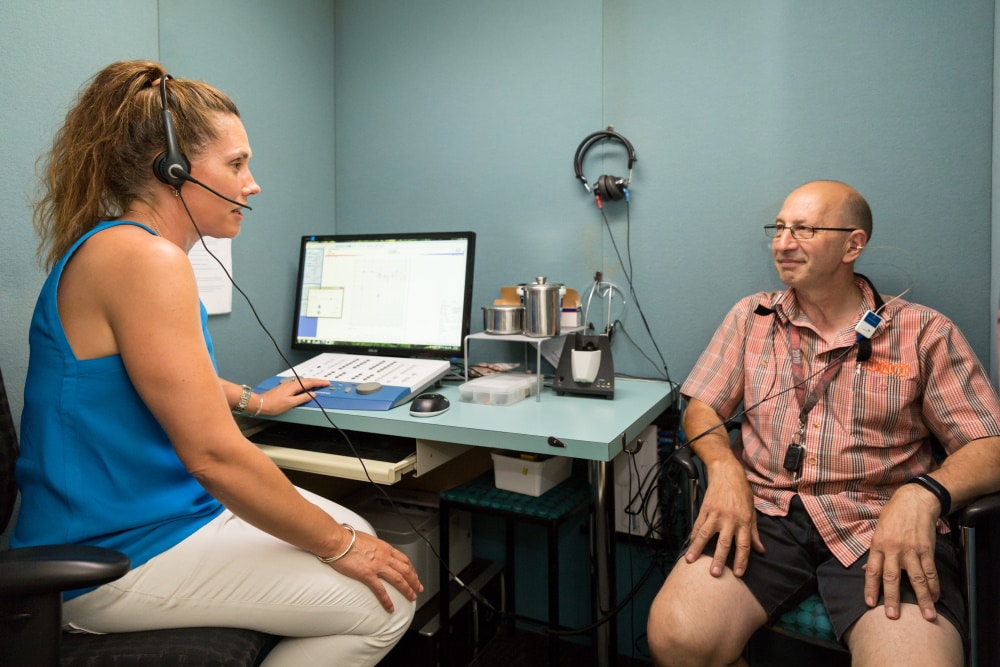
Hearing Tests for Adults
A reduced capacity to communicate has a significant impact on relationships, career opportunities, social connection, independent living and quality of life.
Read More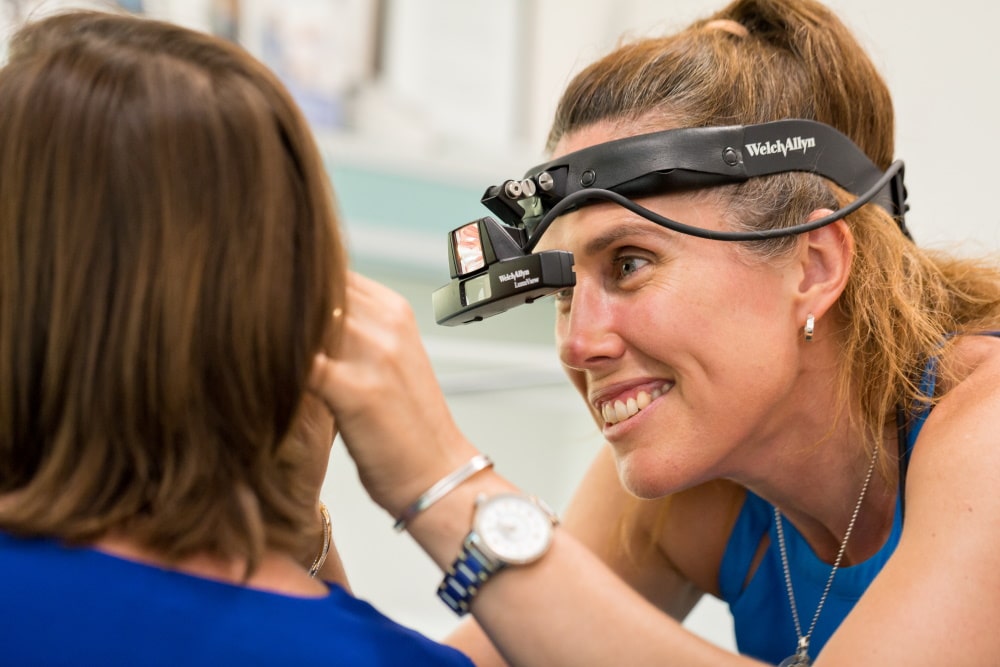
Do I Need A Hearing Aid?
We carry out a range of hearing tests that help determine whether you need a hearing aid.
Read More
Choosing Hearing Aids
Hearing aids are available in three styles; BTE, RIC or are fully contained in the ear.
Read More
Getting Used To Hearing Aids
With new hearing aids your concept of “normal” hearing will need to be relearnt.
Read More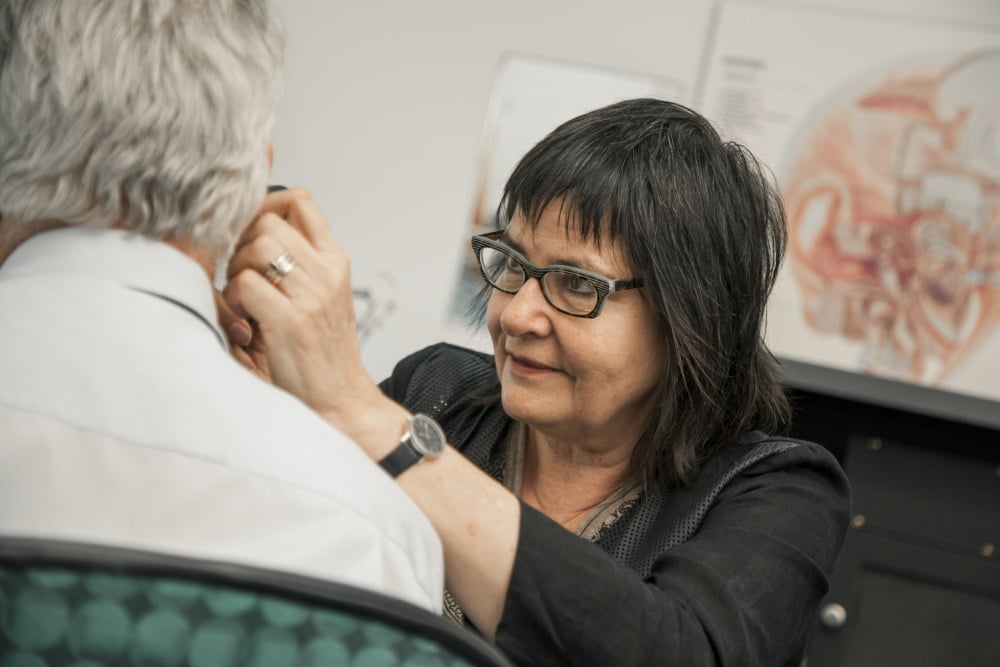
Fine-Tuning Hearing Aids
We have extensive training, experience and expertise in fine-tuning contemporary hearing aids to individual communication needs.
Read More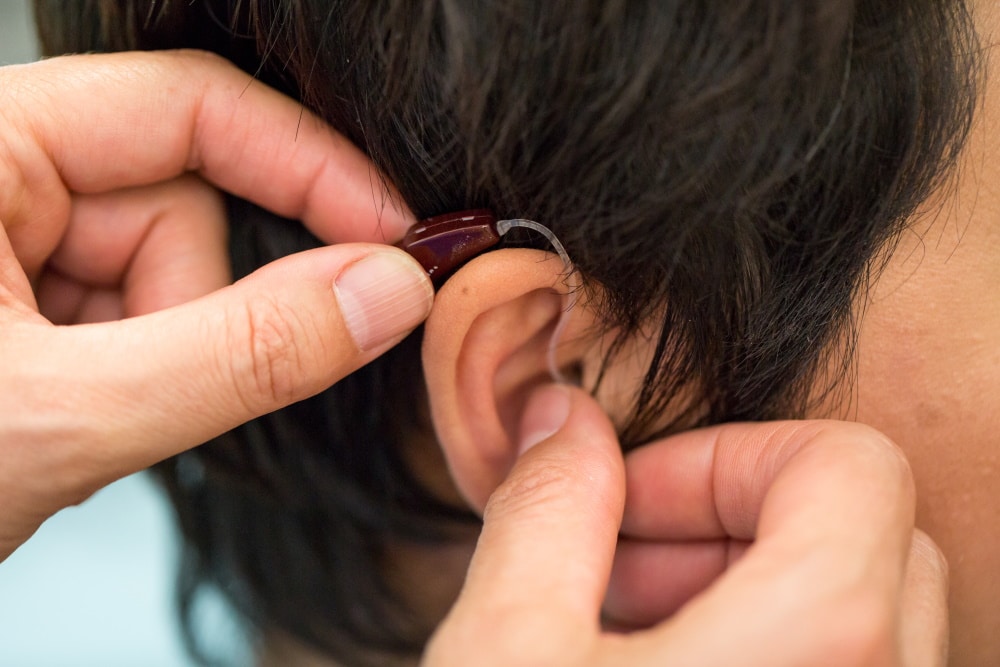
Hearing Aid Fittings
Your fitting package will include an instruction booklet and the accessories needed for maintenance and dehumidification
Read More
Hearing Aid Maintenance
To minimise the need for repairs and to preserve the life of your hearing aids, regular and thorough maintenance is essential.
Read More
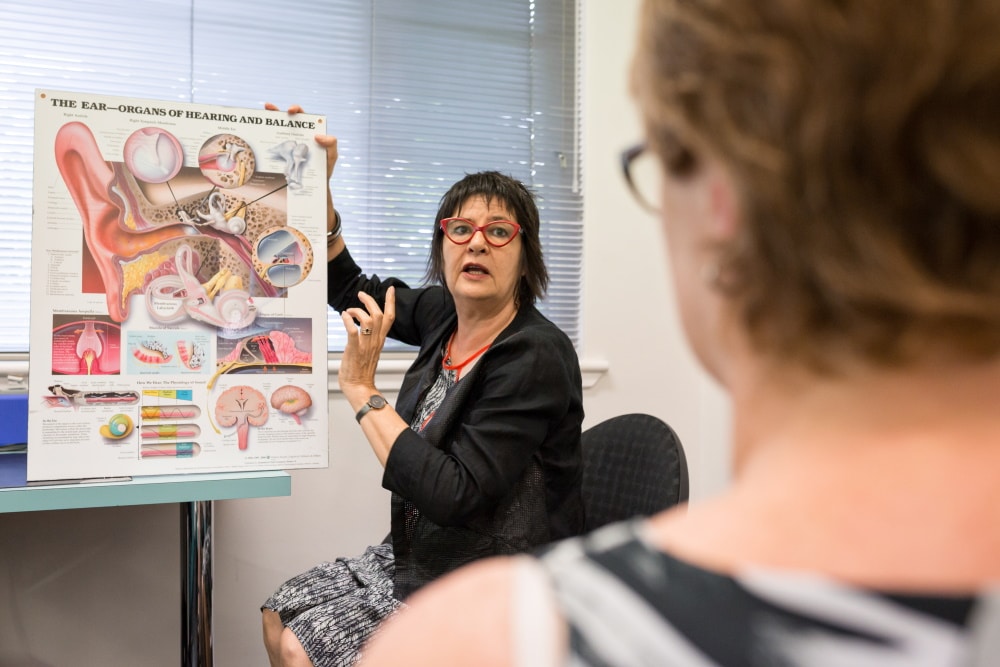
Hyperacusis & Misophonia
Both conditions have the potential to escalate, so that an increasing range of sounds become intolerable.
Read More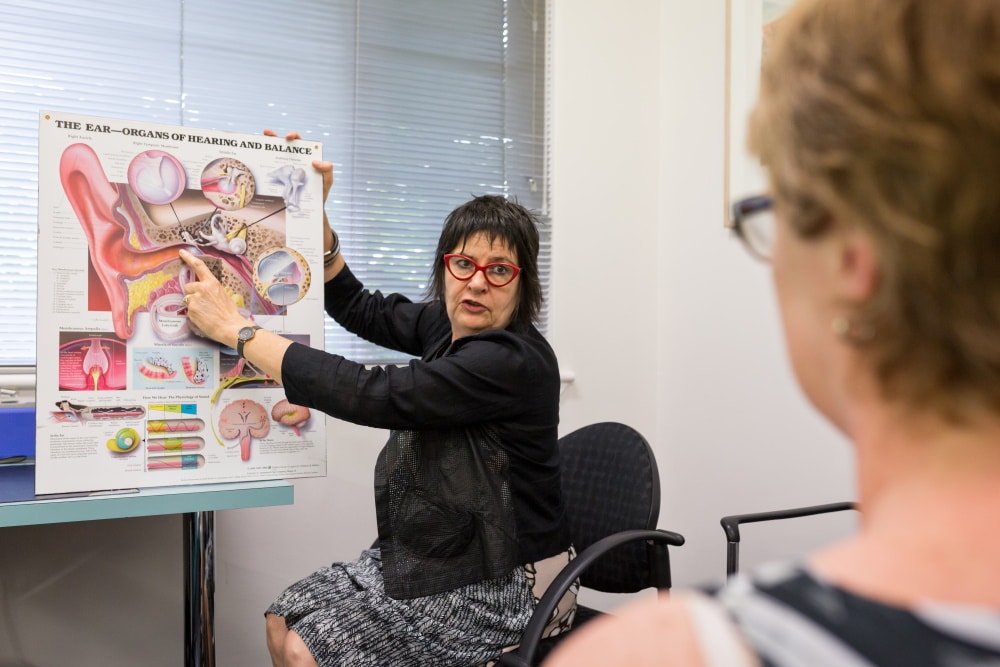

Misophonia
Misophonia is a strongly aversive response or abnormal sensitivity to certain specific sounds
Read More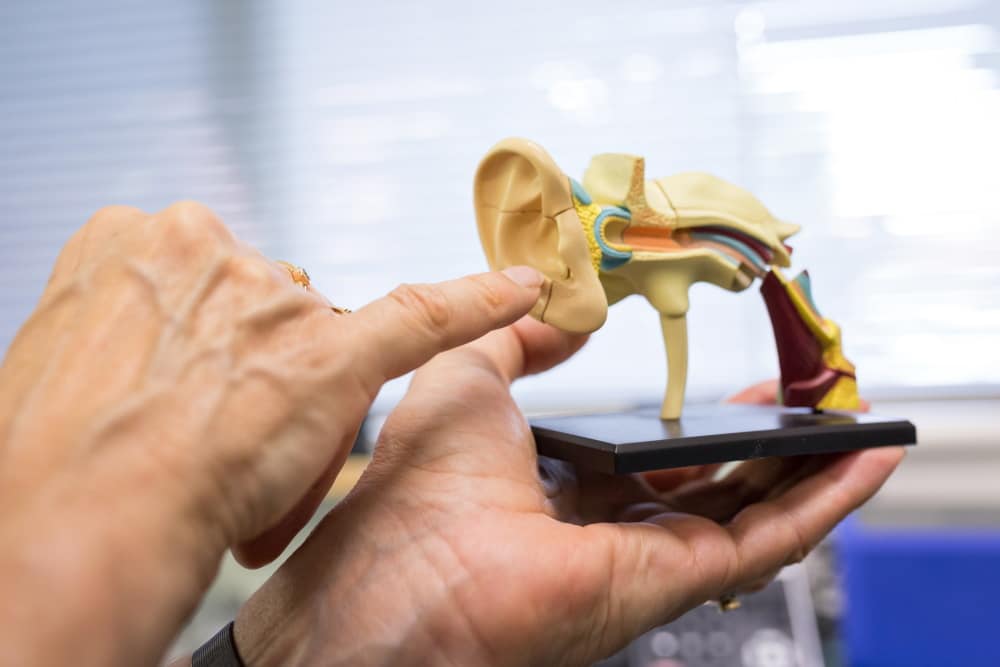
Tinnitus
Tinnitus is the term used to describe hearing any sounds which are not present externally.
Read More
Acoustic Shock
Acoustic shock is an involuntary fright/psychological trauma reaction to sudden, loud noises.
Read More
Hearing Tests for Kids
Hearing difficulties in school age children are known to have a significant impact on their social, behavioural and academic growth.
Read More
